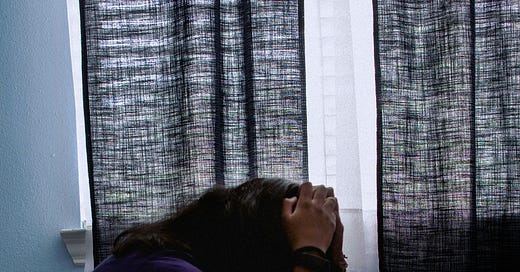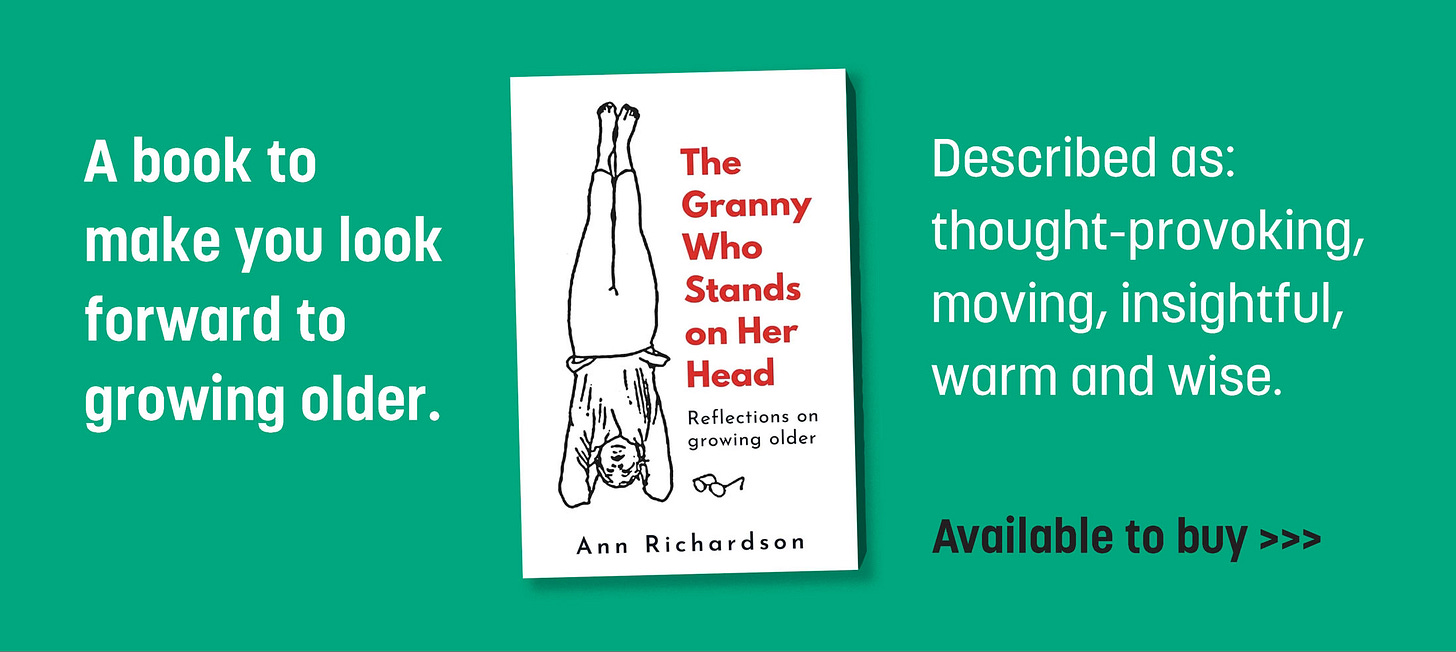Some time ago, I published an article about the death of a toddler from AIDS (Daisy), told movingly by her mother, Sarah. It’s well worth a read if you have some tissues to hand – it’s very difficult to forget.
But Sarah also had some very compelling things to say about her own experiences – and these are set out below.
For those unfamiliar with the AIDS epidemic in the 1980s and 1990s, the key issue is that for a long time there was no cure and many millions of people (over 42 million world-wide) died. HIV is the virus that leads to AIDS. Here, as is often conventional, the two are conflated into the term HIV/AIDS. A diagnosis was often described as being ‘HIV-positive’ or even just ‘positive’.
There was tremendous stigma attached to people with HIV/AIDS stemming in part from simple fear. Rather like Covid, people were frightened of ‘catching’ it and were uncertain about how to avoid doing so. If they were so diagnosed, it was virtually a death sentence. But unlike Covid, the two groups most commonly diagnosed with the disease (homosexuals – seen at that time so differently from today – and drug addicts) suffered from stigma in any case. All of which made the lives of people living with the disease – already very difficult – even worse.
HIV was uncommon among women and therefore even more of a problem for those women who were so diagnosed.
This interview was undertaken in 1991, one of many with people with HIV/AIDS from around the world, all attending an international conference in London.
At the time of the interview, Sarah was 37 and had been living with an HIV diagnosis for seven years. She had just split up from her partner (who was HIV-positive and had given her the disease) and was looking after her four children from an earlier marriage. Daisy had died a few years before.
First, she talks about being diagnosed and her reaction:
I knew that my partner was bisexual from the beginning, he was very open with me, but I hadn't thought about AIDS much. It wasn't really discussed on television or in the newspapers. I had no idea that I could possibly get it.
When I got my diagnosis, I felt terrified. I was in total shock. I felt my life had come to an end. There was just nowhere to turn. We weren't told about any counselling or any help at all.
I felt so filthy – really dirty, unclean. I kept washing myself and having baths – maybe I was thinking I could wash it away.
HIV didn't happen to women – why did it happen to me? I must have done something really wrong. I must have deserved this – it was my punishment for leaving my husband and taking my children away, I hadn't been good enough in my life.
I had a Catholic upbringing, it was like the wrath of God.
Like many others, Sarah felt she had to keep the diagnosis to herself:
I was living a lie all the time. I was this very straight housewife with five children taking them off to school – and then I had this dreadful secret. I felt totally nervous all the time that somebody would find out and tell the children. Even the other mothers at the school, I wouldn't get into long conversations with them because I felt they would see it.
My partner didn't want me to tell anybody. He begged me not to tell my parents – he was worried they would blame him. So, for four years I didn't tell them. He wouldn't tell his either.
Eventually, she felt able to talk to others and gain support:
After a couple of years, I went to a new clinic for people with HIV. The worker asked if I would like to meet another woman with the disease and gave me a phone number. I couldn't wait to get home. I dialled the number and we were talking for maybe two hours, just non-stop.
As soon as I met her, it changed my life. I realised that I hadn't done anything wrong, that I wasn't a criminal. We've become really firm friends. We have good times, laughs – when you've got HIV, life becomes very serious, it's quite hard to enjoy life.
I'd met men who were HIV-positive, but when you meet another woman, it is just incredible. I felt there was somebody there who I could talk with about things that happen with women. We are different, biologically, and we could compare how we were feeling.
It was like this huge weight had been lifted off my shoulders, someone saying it'll be alright, don't worry, there are people who can help you.
I realised that the next step to tell my parents. My father had been asking me for a long time – he knows me really well and he'd say what's wrong, what's wrong my love, what are you worrying about?
My mother and father were in bed... I always used to go in and chat with them and I went and sat on the side of the bed. I just said mum I've got something to tell you – and my dad said what is it, what's wrong? I just couldn't say it – and my dad held my hand and said look, nothing can be that bad, so I blurted it out, I'm HIV positive.
They cried and held me and asked if the children had the virus. I said no, but I explained that my partner did.
My dad's got a really dry sense of humour. He put his arms round me and said all I can say is thank God, you're not pregnant! Because usually I go in and say dad I'm pregnant again, so we laughed.
My mum said I won't let you die, we’ll fight this together, she was really strong.
We're a very close family. My brother's bought a bigger house so that if anything happens to me, there's a home for my two younger children. It was done in a very subtle way – he said there's always those rooms for anybody. I was really touched that he could care that much.
Sarah had to face the issue of telling the children:
The little ones don't know, they know mummy's not well, they know something's wrong because I have to have my blood taken.
I told my son when he was 16 – that was the hardest thing I ever had to do in my life. Telling him that I've got a potential death threat – he became a little boy, He just said who will look after us and I said I'm not going anywhere yet, I want to stay well. And then afterwards, he kept doing things like putting the rubbish out, carrying my shopping, things that he would never consider before.
And Sarah talks about her current situation:
We've now formed a woman's group. Before, there were a lot of gay men and we women found we were looking after them, listening to their problems and not getting anything out of it ourselves. We felt it would be really good if we started a group just for women. We can talk about problems, not just to do with HIV. Just supporting each other, having good fun, having a laugh.
I'm much more careful about who I choose to be with – every day has to be very special. I wake up and I think today's going to be a good day, so I want to be with people that I'm happy with, the people I love. It's important, life has to be good.
And simple things like waking up and seeing the sunshine and looking at the flowers, seasons changing and thinking God, I've made it. Here we are coming up to Christmas.
I don't want anything major out of life – I just want to enjoy my children and my family, making a nice meal and having fun. I don't look too far to the future.
Sarah died a few years after this interview.
If you have an interest in reading more about people with HIV/AIDS at the height of the pandemic, I have also published this interview on Substack with a young man studying to be a priest. Of course, there is also my book on the subject, covering people from all over the world; this has a Foreword by Sir Ian McKellen in which he describes it as being “As powerful as any great classic of fiction.”.
You all know that I love hearing from you. The ‘likes’ are definitely nice, but the odd sentence or paragraph is a real treat. What did this post make you feel? You are all much too clever to need questions to answer – I like to think that I stimulated some thoughts of whatever kind but I am also greedy to hear them.
Over to you.





I am a nurse and was assigned to the “Aids” unit one day. Patients walked around in their street clothes (in the 80’s) which made them feel “normal” as can be. I was terrified to even touch them. I soon learned they were scared of this disease as much as I was. I double gloved, as needed, and took care of them as I did anyone else. People are people no matter what illness they encounter.
Thank God for the viral medicines discovered for HIV-positive patients. They are living a better, longer life enjoying family and friends to their fullest.
Thanks for giving a voice to the HIV-positive community.
Ann, you are the BEST! I love that you are “greedy” for the odd sentence or two in response. I had several reactions: the first was to be so sad about Sarah and her children; the second was to wonder why she was never able to receive treatment and thus died so young. I’m not remembering when the first effective drugs were introduced - ? Another response I had was to reflect on how extraordinary your earlier career was. You are truly a woman of multitudes.